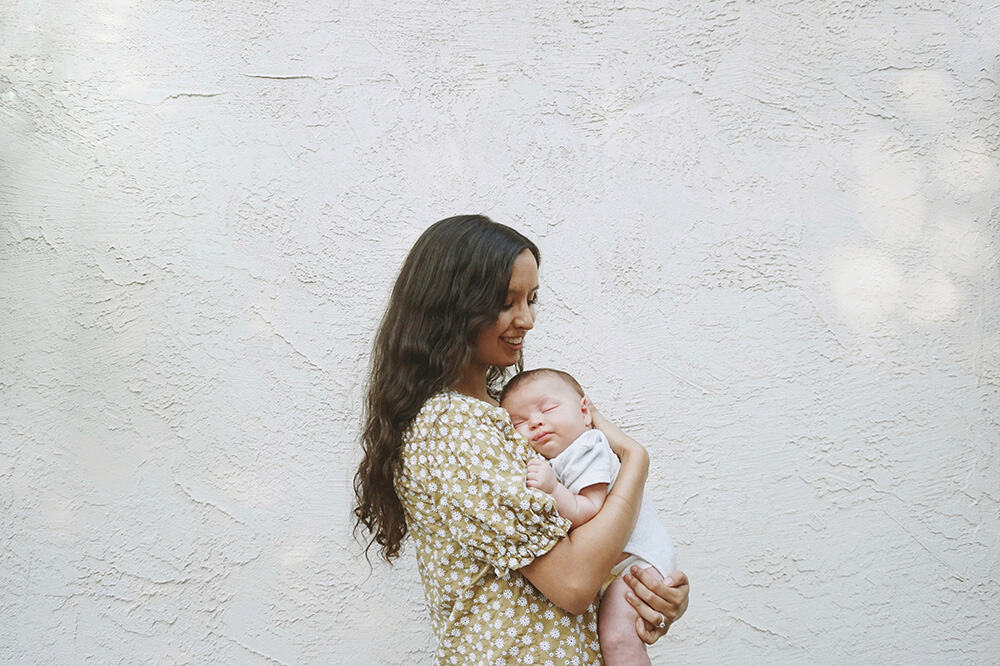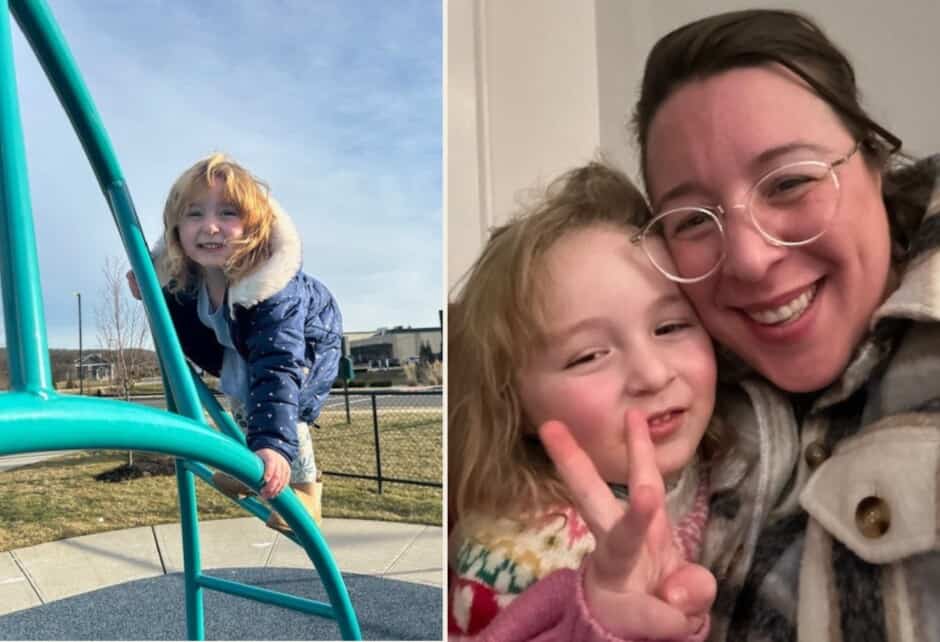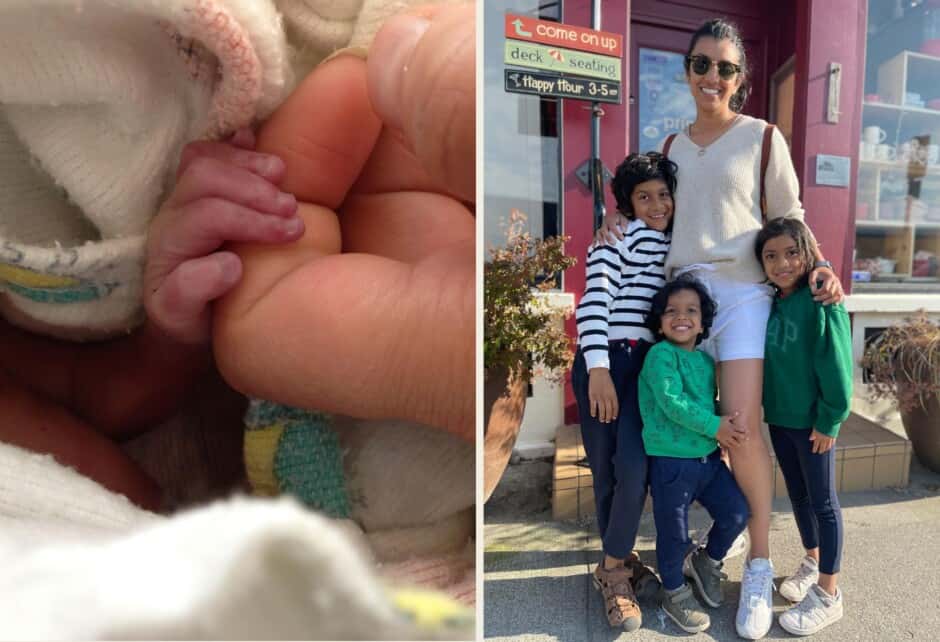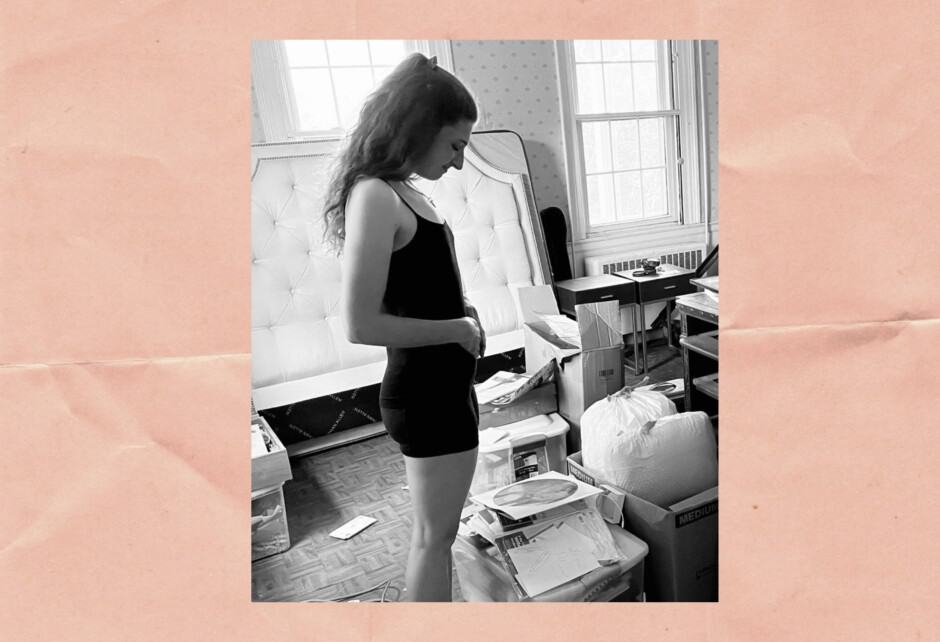
Mom Talk: All About Cholestasis & Advocating For Yourself
Written by Rebecca Picchi
Photography by Photo Courtesy of Rebecca Picchi
We have to admit, we had never heard of Cholestasis before Sacramento-based mother of two Rebecca Picchi reached out to us. Which is precisely why Picchi’s Mom Talk essay is so important. The pregnancy-related liver condition Intrahepatic Cholestasis of Pregnancy (ICP)—most often marked by incessant itching—can cause stillbirth if not detected early enough. Below, Picchi tells us her story in an effort to raise awareness around Cholestasis. We ask you to read it and spread the message far and wide.
There are so many things to learn during pregnancy. From the moment you see that positive test, you enter into an entirely new world of unknowns. “What am I supposed to eat? How am I supposed to sleep? Is this pain normal? How can I make sure my baby is healthy?” An endless array of questions like these race through your mind as you start to imagine your life +1. Fortunately, many of these answers are accessible via an internet connection. It’s reassuring, the sheer number of online resources devoted to educating and helping women throughout their entire journey into motherhood, available at the click of a button. So, when I found out I was pregnant with baby number 2 due at the end of June 2020, I was confident that my pregnancy experience this time around would be a breeze, armed with the research done and knowledge I had gained from having my first.
Fast forward to March 2020. I was thrust into a chaotic time with some changes welcomed and expected and others…not so much. I was six months pregnant and embarking on a new career at a new company and sifting through all the changes that come along with that (hello, employer-based health coverage). The world was also grappling with a pandemic and my husband and I suddenly found ourselves quarantined at home, working remotely full-time while taking care of our almost 2-year-old daughter full-time. The adjustment was difficult to say the least, not having the usual support of daycare and family that we’ve traditionally relied on, but these were different times and we did what we needed to do to keep our family safe. This included me staying home exclusively, with the only exception being my prenatal appointments, having been diagnosed with gestational diabetes for the second time.
As we adjusted to our new reality, we quickly realized that we needed to prepare to be quarantined until my due date. That meant no baby shower, no birthday parties, no family gatherings. As hard as that was to imagine, we accepted it, not wanting to risk the health and safety of our newest arrival. My focus was to prove myself at my new job prior to taking maternity leave and to keep my family healthy and thriving at home. This is, of course, easier said than done as those first months of quarantine were a complete blur of exhaustion. We had very little time for anything other than work and parenting and compensated for this by staying up at night later than we should have, just to have those quiet, conscious moments of relaxation. My husband and I would catch up and watch T.V. together then head to bed to get ready for another crazy day of barely getting by.
It was already May and I was getting closer to the end of my pregnancy. I realized that I hadn’t yet had trouble staying asleep through the night, which was a challenge with my first pregnancy. I was very grateful for that, as I especially needed the sleep with all we were going through being pregnant in a pandemic. However, I started having trouble falling asleep. And not for the very obvious reason traditionally plaguing women in their third trimester—I was just so itchy. This went on for a few days, starting up at nighttime while we watched T.V. I would scratch my feet and legs and couldn’t find relief no matter how much I scratched. One night was especially bad as I approached 34 weeks of pregnancy. I laid in bed awake for two hours, scratching my feet and legs constantly, creating sores all over my legs. It didn’t feel normal. So, I did what is usually not recommended and typed my symptoms into a Google search in the middle of the night. “Third trimester, itchy feet and legs.” I was prompted with a condition called Cholestasis of pregnancy and after a quick skim of the article, I felt a sinking feeling in my stomach.
Intrahepatic Cholestasis of Pregnancy, or ICP, is a group of liver disorders specific to pregnancy which interfere with the flow of bile. One of the most common symptoms is itchiness, focused on your feet, legs, and hands without a rash in the third trimester of pregnancy. The risks? Preterm labor, fetal distress, and stillbirth after 37 weeks gestation. I had never heard of this condition before, nor had my family and friends. I researched all that I could about Cholestasis and came across a number of stories online of women drawing attention to the condition after their babies had tragically succumbed to it as a result. They hadn’t heard of the condition before but most importantly, neither had their prenatal doctors. With my biweekly prenatal appointment coming up at 34 weeks, I armed myself with the knowledge of Cholestasis plus the testing needed to diagnose the condition. If there was a possibility that my doctor didn’t know about this condition, I was going to need to speak up before it was too late.
Two days later, my prenatal appointment began like the rest of them. A quick weight check, blood pressure, and hearing the baby’s heartbeat through the fetal doppler. My actual check-in with the doctor usually only lasted about 2 minutes since both pregnancies were fairly easy. I often had no questions or concerns, had my gestational diabetes under control, and just wanted to hear a healthy baby. As my doctor raced through the normal procedures as usual, she asked me if I had any questions. Of course, this time I spoke up. I told her about the itching late at night focused on my feet and legs. I couldn’t attribute it to rapid weight gain since my stomach was largely unbothered by the itching. Prepared to make a speech about my concern about Cholestasis and wanting to be tested, she immediately chimed in and suggested a comprehensive metabolic panel and bile acids fractionated and total pregnancy blood test to rule out any high risk concerns, including Cholestasis. I went down to the lab and got my blood drawn immediately after the appointment, prepared to wait until the end of the week for my results.
It was Friday morning and the fourth day after I had gotten my blood test done. I was 34 weeks exactly. The itching had subsided slightly from its height the weekend before, but I was still experiencing frequent itching on my feet and legs. I was anxious to hear back before the weekend. Not only did I want to know if I had Cholestasis or not, but I wanted to know if we needed to come up with a new plan for delivery day, being in the midst of a pandemic and needing to plan ahead for our toddler’s childcare. At 12:30 p.m., I received a call from my doctor. All of my results were high, including my bile acids total being nearly 4x the normal levels. I had Cholestasis and needed to deliver in 2 weeks, if not sooner. She asked if I could come to the hospital within the hour to do a Non-Stress Test (NST) so I quickly emailed my manager, grabbed what I had put together of my hospital bag thus far, and ran out the door to the hospital alone.
I went to Labor & Delivery for my NST and was informed that I’d have an appointment every Friday and Tuesday up until my induction. If the baby failed any of the NSTs or seemed to be in distress, they’d admit me then and there, and I wouldn’t be leaving the hospital until I delivered my baby. This was a stressful time, having to attend these appointments alone, ask for leniency with my new job with the sudden news that I’d be delivering in two weeks instead of six, and having to plan to potentially stay in the hospital after each NST every Tuesday and Friday. I had to pay very close attention to the baby’s kicks throughout the day as well—if they slowed down or didn’t seem normal, I was instructed to head to Labor & Delivery immediately. I was also prescribed with Actigall to take twice daily to help with the itching, but it didn’t help very much. The only known cure for Cholestasis in pregnancy is delivery.
Fortunately, my baby passed each NST. My doctor and I scheduled my induction for 36 weeks and 1 day, worried about pushing my pregnancy closer to the sometimes fatal 37 week mark. With the support of our family members, many of whom selflessly took the Covid-19 diagnosis test and quarantined themselves, I was able to have my husband at the hospital with me for induction day. After about 12 hours in the hospital, we welcomed our son Mario Picchi on May 30th, 2020. Because he was 4 weeks early, a team of neonatal nurses quickly took him after his birth and hooked him up to a CPAP machine, as he was unable to breathe on his own yet. As surreal as that was, we were just so grateful and relieved that he was born alive.
Mario spent his first week in the NICU with an amazing team of nurses and doctors. He is now just over two months old and is happy, healthy, and thriving. Our story with Cholestasis had a happy ending, but I’ve read so many anecdotal stories of women losing their babies late in pregnancy due to the disease. I also come from a place of privilege where it’s easy enough for me to access information online, have a doctor familiar with high risk pregnancies, work for a company that was supportive in me needing to go on leave with very little notice, and to have health insurance. This is not the case for everyone and shouldn’t be a determining factor of whether someone can save their baby’s life or not. Because I was fortunate to have done extensive research on my symptoms ahead of time and to have come across stories of other women who were diagnosed with Cholestasis (the good and the bad), I was ready to fight for the blood tests I knew I needed, feeling a strong need to advocate for myself more than ever before. I knew something was off and I can’t imagine what could have happened if my doctor had blown the symptoms off and recommended I take an over-the-counter medication, not to be seen again until it could’ve been too late.
Between raising a toddler, making a career change, and changing the benefits that come along with that, navigating gestational diabetes, and trying to get by safely during a pandemic, I had to advocate like a MOTHER nearly every day during this pregnancy. The Cholestasis diagnosis was the final test in how fiercely I could and needed to advocate for myself. And it was worth it.
Trust your gut. Do research. Ask questions, no matter how insignificant they may seem. Fight. You are your biggest advocate.
For more information and resources about Cholestasis, please visit icpcare.org.
Are you a mother with something to say? Send us an email to be considered for our “Mom Talk” column.
Write a Comment
Share this story




Thank you so much for sharing your personal story and bringing awareness to this condition.